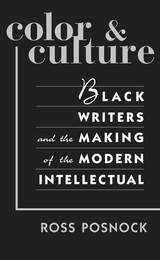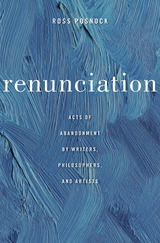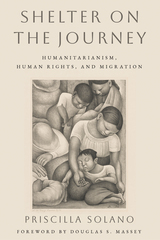
The coining of the term “intellectuals” in 1898 coincided with W. E. B. Du Bois’s effort to disseminate values and ideals unbounded by the color line. Du Bois’s ideal of a “higher and broader and more varied human culture” is at the heart of a cosmopolitan tradition that Color and Culture identifies as a missing chapter in American literary and cultural history. The book offers a much needed and startlingly new historical perspective on “black intellectuals” as a social category, ranging over a century—from Frederick Douglass to Patricia Williams, from Du Bois, Pauline Hopkins, and Charles Chesnutt to Nella Larsen, Zora Neale Hurston, and Alain Locke, from Ralph Ellison and James Baldwin to Samuel Delany and Adrienne Kennedy. These writers challenge two durable assumptions: that high culture is “white culture” and that racial uplift is the sole concern of the black intellectual.
The remarkable tradition that this book recaptures, culminating in a cosmopolitan disregard for demands for racial “authenticity” and group solidarity, is strikingly at odds with the identity politics and multicultural movements of our day. In the Du Boisian tradition Ross Posnock identifies a universalism inseparable from the particular and open to ethnicity—an approach with the power to take us beyond the provincialism of postmodern tribalism.

Renunciation as a creative force in the careers of writers, philosophers, and artists is the animating idea behind Ross Posnock’s new book. Taking up acts of abandonment, rejection, and refusal that have long baffled critics, he shows how renunciation has reframed the relationship of artists and intellectuals to society in productive and unpredictable ways.
In a work of remarkable synthesis that includes traditions and genres from antiquity to postmodernity, Posnock discovers connections among disparate figures ranging from Lao Tzu to Dave Chappelle and Bob Dylan. The thread running through these acts of renunciation, he argues, is an aesthetic and ethical resistance to the demand that one’s words and actions be straightforward and immediately comprehensible. Modern art in particular valorizes the nonconceptual and the intuitive, seeking to make silence articulate and incompletion fertile.
Renouncers reject not only artistic and scholarly conventions but also the public roles that attend them. Wittgenstein, Rimbaud, and Glenn Gould brazenly flouted professional and popular expectations, demanding that philosophy, poetry, music play by new rules. Emerson and Nietzsche severed all institutional ties, while William James waged a guerrilla campaign from his post at Harvard against what all three considered to be the enemy: the pernicious philosophical insistence on rationality. Posnock also examines renunciations in light of World War II—the veterans J. D. Salinger and George Oppen, and the Holocaust survivor Paul Celan—while a fourth cluster includes the mystic Thomas Merton and the abstract painters Ad Reinhardt and Agnes Martin.
READERS
Browse our collection.
PUBLISHERS
See BiblioVault's publisher services.
STUDENT SERVICES
Files for college accessibility offices.
UChicago Accessibility Resources
home | accessibility | search | about | contact us
BiblioVault ® 2001 - 2024
The University of Chicago Press









